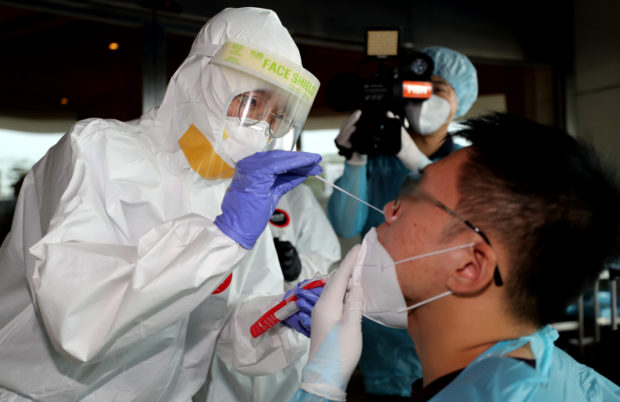SEOUL — South Korea’s public health authorities said Monday they have found three new mutated genome sequences of the novel coronavirus among imported cases.
Genetic mutations were detected to “spike protein,” the major surface protein of the virus, from the three COVID-19 imported cases — two from Pakistan and one from Uzbekistan — according to the Korea Centers for Disease Control and Prevention (KCDC).
The KCDC said the new mutations are different from 78,810 viral genome sequences registered at the GISAID database on the virus run by the World Health Organization.
“(Three people) were self-isolated upon entering the country. There were no people who had contact with them in the country,” KCDC chief Jeong Eun-kyeong said in a press briefing
The finding was based on the KCDC’s analysis of sequenced genomes of a total of 776 COVID-19 patients, including 597 local infections and 179 imported cases.
Jeong said further experiments should be conducted to determine the level of infectivity and pathogens.
The new coronavirus is classified into seven strains — S, V, L, G, GH, GR and the rest — in accordance with an amino acid, according to the GISAID database.
The GH clade was detected in 437 local infections, with most linked to a warehouse by the country’s leading e-commerce operator, the KCDC said.
The GH clade, which mutated from the S strain, proliferates well in cells and is more infectious, which may make it spread faster.
The second-most-common coronavirus clade in South Korea was V, with 120 locally transmitted cases falling into the genetic strain, the KCDC said.
According to the KCDC, 32 local cases were grouped under S clade, and eight cases under GR.
Of the 179 imported cases, 100, or 56 percent, were classified as GR clade, 40 as GH clade and 18 as G clade, the KCDC said.
The country identified an additional 28 virus cases on Monday, including 17 local infections, raising the total caseload to 14,626, the KCDC said. Yonhap
